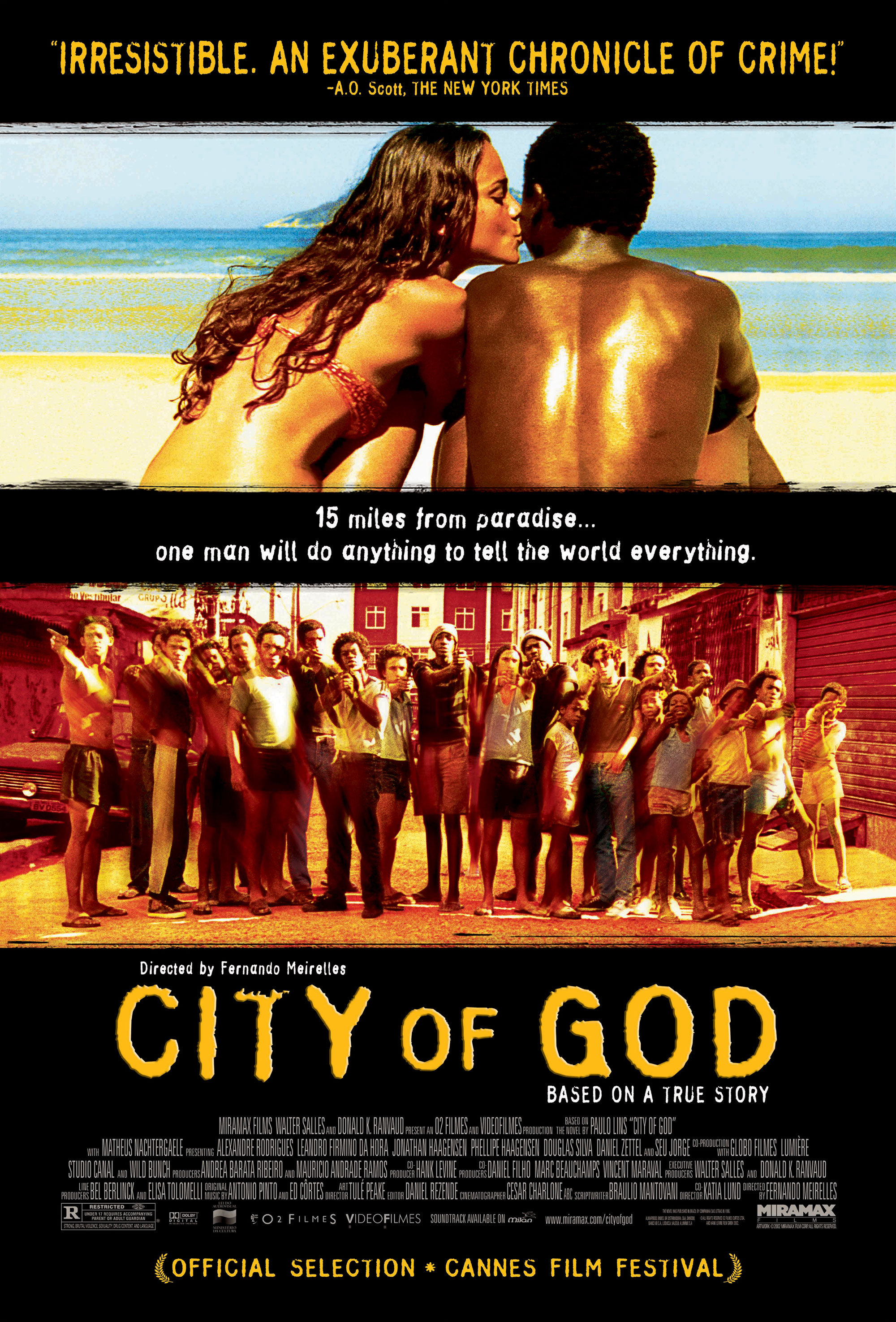Film Review: City of God (2002)



Following Rocket through the City of God
Movies almost always have good guys and bad guys. We know this. The good guys may not always so good, and the bad guys not always so bad, but we generally have someone we want to see succeed, and someone we want to see fail. They’re set up this way for a simple reason. We need someone to attach to on an emotional level and to help us navigate the world of the film. Whether it be very much like our own, or different than anything we’ve ever seen before, every movie has a set of rule that governs its universe. The protagonist is our guide through this universe, and helps us maneuver and adhere to the established rules.

Inevitably, he or she (or it) will face some sort of challenge that must be overcome or a goal that must be fulfilled. This goal is often the meat of the story and is what drives the narrative. If our protagonist wasn’t trying to accomplish something, and something or someone wasn’t in their way or trying to prevent them, odds are we wouldn’t be left with much of anything. We attach ourselves to the protagonist, for better or worse, and join them on their quest, big or small.

In the opening sequence of Fernando Meirelles and Katia Lund’s film City of God (2002), we are introduced to Rocket (Alexandre Rodrigues), a young man who lives in the favelas of Rio de Janeiro. He has big dreams of becoming a photographer and escaping the violence, poverty, and chaos of the slums. In the opening sequence, we learn that Rocket is willing to risk his life for a photograph, a photo that may land in the newspaper, which will get him a job, which will help him to escape. His voiceover then tells us that “A picture could change my life, but if you run away, they get you, and if you stay, they get you too.” He tells us this while stuck in the middle of a tense standoff between a drug gang and the police.

Rocket’s words and actions are the catalysts of the narrative. They give us meaning and allow us to follow him on his journey through two decades in the City of God. He is far from the only character examined in the film – there are at least a dozen, and the film could conceivably be told from any number of points of view – but it is Rocket’s perspective that has been chosen. Besides, most of the other characters wind up dead.

City of God – and Rocket’s telling of it – takes us back to the 1960s, just after the slum was built as a temporary housing project. His memory of its history and characters is better than anyone else’s. He seems to know all the ins and outs of the neighborhood, exactly how things got to be the way they are at the story’s opening. Perhaps this is the journalist in him, cataloging every event and player for future reference. His sense of history and storytelling guide us through the narrow alleyways and tight corridors of the favela better than another character could simply because most have selfish motivations, and don’t know or even care about how anyone got to where they are. Every other character lives in the present only, while Rocket also remembers the past and looks to the future.

Rocket is just one of many very colorful characters in the City of God, and his is just one of many stories that make up its narrative. However, with a chronicle as complicated and rich as this one, we need a guide. We need a grounding agent that keeps us on track and eases us through the rich story. His goals and aspirations are noble and pure, which makes it very easy for us to find ourselves attached to him emotionally. It’s easy for us to follow him as lays down the rules of the favela as he guides us through it.
